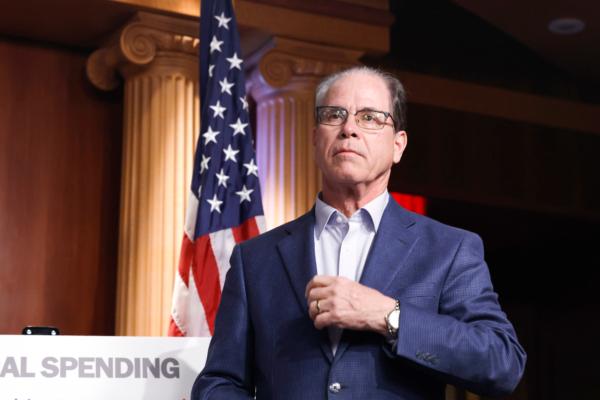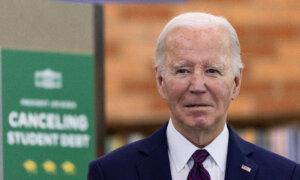State’s election commission said John Rust failed to meet basic voting requirements in the past two primaries.
Indiana Republican hopeful John Rust will not appear on the GOP primary ballot for U.S. Senate in May 2024 after the state’s election commission said he failed to meet basic voting requirements in the past two primaries.
The state’s bipartisan election commission—composed of two Republicans and two Democrats appointed by the governor—issued the unanimous decision on Feb. 27, following a meeting in Indianapolis.
“(Rust) could have done all kinds of things … he could have played by the rules,” Commissioner Suzannah Wilson Overholt, a Democrat, said after the decision. “If you want to run as a candidate in this state, there are rules you have to follow.”
The commission’s decision was based on Indiana law requiring candidates to have either voted in their party’s past two primaries or to have received the approval of a county party chair in order to appear on the primary ballot.
In his lawsuit, Mr. Rust, an egg farmer, said he was a “lifelong Hoosier and a Republican business owner with deep ties to the community” as well as a “lifelong Republican and has donated over $10,000 to Republican candidates.”
He said he didn’t vote in the 2020 Republican primary due to the lack of competitive Republican races in Jackson County.
‘Vague, Unconstitutional’
The state law, he argued, is “unconstitutional” and “vague” and “creates a cycle of voter disenfranchisement” because his county party chair “emphatically refuses” to certify him to appear on the primary ballot.
“There are no choices on the ballot so Hoosiers do not vote in primaries. Then Hoosiers are precluded from running for office because they did not vote in primaries,” his lawsuit stated. “The statute makes it so only a small percentage of Hoosiers and those hand-selected by the party chair are eligible to run for office.”
In December, Marion County Judge Patrick Dietrick agreed with Mr. Rust, ruling that he should be allowed on the ballot because the primary voting restriction was “unconstitutional.”

No written ruling explaining the decision has yet been issued. Both decisions leave Rep. Jim Banks as the only GOP candidate in the running to replace Sen. Mike Braun, who is vacating the seat to run for governor.
The Indiana Republican Party and former President Donald Trump have endorsed Mr. Banks in the Senate race.
“Today proved that the political insiders are continuing to rig our elections. It’s this kind of disregard for Hoosiers that inspired me to run for the U.S. Senate in the first place,” Mr. Rust wrote.
“We will be appealing this all the way up to the United States Supreme Court if necessary. Especially considering that this hearing had a predetermined outcome. I will never stop fighting for Hoosiers,” he added.
The 2024 Indiana primary is set to take place on May 7. Voter registration ends on April 8.
The Associated Press contributed to this report.
Original News Source Link – Epoch Times
Running For Office? Conservative Campaign Consulting – Election Day Strategies!


